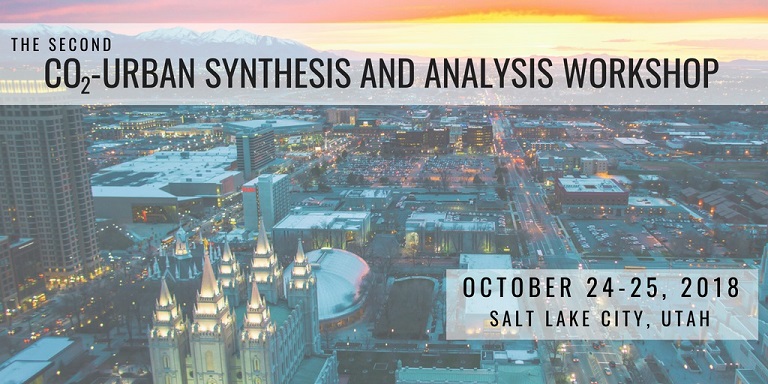Two ARL Scientists Contributing to Workshop on Understanding Greenhouse Gas Emissions
October 2018
October 2018
Drs. Christopher Loughner and Ariel Stein will participate in the CO2-Urban Synthesis & Analysis (CO2-USA) workshop from October 24-25, 2018 in Salt Lake City, Utah. During the event, Dr. Loughner, a Co-Principal Investigator (Co-PI) for the CO2-USA Network, will present “Incorporation of STILT features into HYSPLIT,” an overview of his work on the latest developments in the HYSPLIT model to assess greenhouse gas (GHG) source attribution. Based on an older version of ARL’s HYSPLIT model, the STILT model has traditionally served as the preferred model for estimating GHG emissions due to its multiple complex routines for handling pollutant transport via advection, diffusion, and convection.
About the CO2-USA Network
The CO2-USA Network began in the summer of 2017 and is comprised of a PI from the University of Utah, Dr. Loughner’s Co-PIs from Boston and Harvard Universities, and includes Dr. Stein as a collaborator. Funded by NOAA’s Office of Oceanic and Atmospheric Research Climate Program Office (CPO), the project’s goal is to develop a tool for scientists and policy makers to utilize for estimating GHG emissions from urban areas. As cities and states develop GHG emissions reductions targets, they need data and tools to examine whether they are meeting their goals. The GHG emissions inventories and modeling framework under development by the CO2-USA Network will ensure the ability to achieve these goals.
About the Workshops
CO2-USA workshop goals are to exchange ideas on how to best harmonize and integrate GHG inventories and observational data, to provide an update on the modeling tools used to estimate GHG emissions, and to gather input regarding the needs of city and state level stakeholders in order to meet their sustainability goals.
Designed around the theme “Scalable and transferable atmospheric modeling,” next week’s workshop is the second of three planned under the CO2-USA project. Registrants include representatives from Federal, state, and local government organizations, universities, environmental organizations, and private companies. The first workshop, “Building a community and shared datasets,” was held in November 2017 and the last, “Synthesize across cities with user communities,” will be held in 2019.
